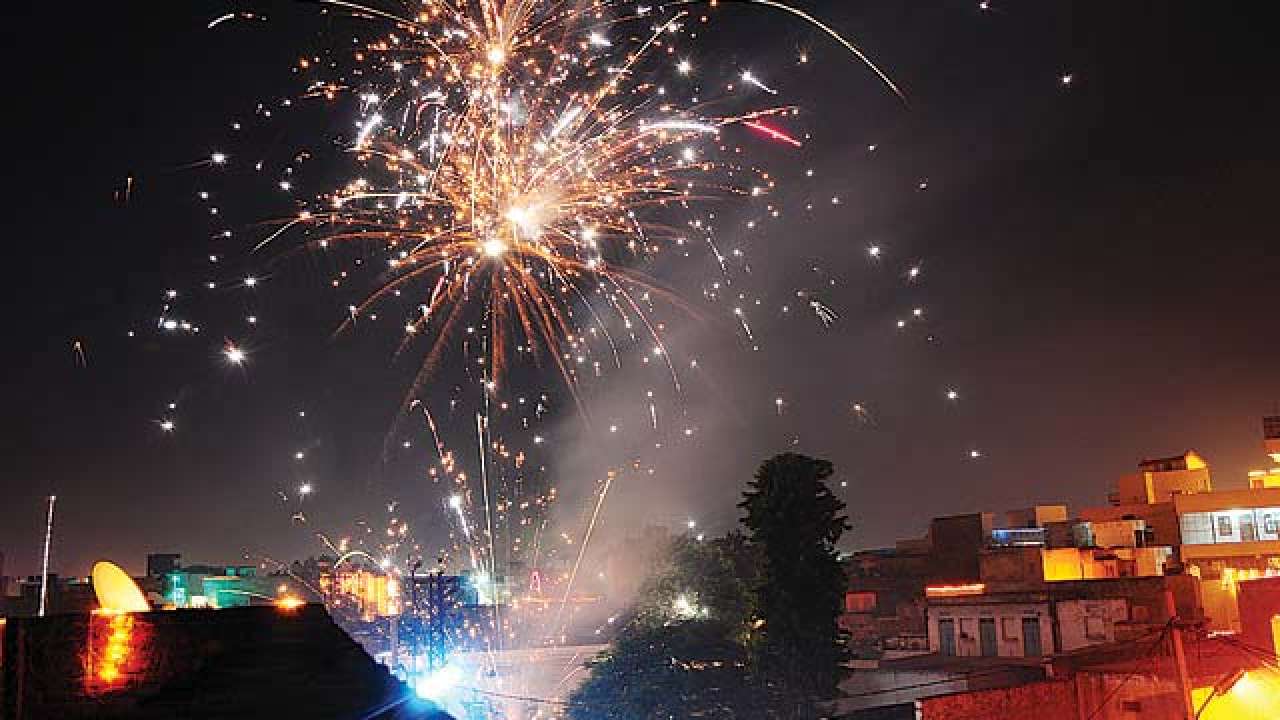
There has been a furore over the firecracker ban in Delhi in the past few days, as well as a counter-accusation that the debate has taken a ‘communal’ tone. Diwali is a Hindu (as in religion) festival. It is also a festival that has occupied space in the cultural landscape of our country, and it would not be out of line to state that it is celebrated by adherents of all faiths. Also in living memory, the celebration has been associated with the bursting of firecrackers. There have been attempts to negate the presence of firecrackers by pointing out that there is no scriptural sanction — a futile argument which will be as persuasive as seeking a Christmas reference in the Bible. Celebrations evolve over time, the essence of the festival and its purpose remain the same, and this is true for all faiths.
In the last few years, we have seen aggressive commentary and use of legal means to curb the way Hindu festivals have been celebrated. In recent past, sandwiched between the two ‘regressive’ (as per voluble commentators) festivals of Raksha Bandhan and Karwa Chauth, there was the controversy over Durga visarjan in West Bengal. A proposed ‘ban’ by the Chief Minister was wisely set aside by the Calcutta High Court. Then there were further issues with the height of the dahi handi, navratri music, kanwariya pilgrims, waterless Holi, and so on; a steady stream of disgruntlement with Hindu festivals, each highlighted and debated aggressively.
In these ‘ambient’ condition, if this ban on the sale of firecrackers is being viewed as an assault on Hindu festivals, it must be in fairness given consideration. Inarguably, there is a need to reform and amend practices to fit in with the times and the general good of the public. Hindus have been open to these changes and engaged in discussions with co-religionists as well as those outside the faith, through its history. This tradition of openness must be upheld and defended. However what must also be questioned is the toxicity that is increasingly directed against Hindu festivals. Even in instances where it’s a matter of personal choice like Karwa Chauth, there is a tendency to shame women who celebrate it.
As for the communal hue, when the Yogi Adityanath government took office in Uttar Pradesh, the closing down of illegal slaughterhouses, mandated by the courts, took on a decidedly communal tone in discussions. Its separation from the practice of faith was beyond six degrees. It was an issue of livelihood and public health. It should have been discussed in that context, instead, vested political interests skewed the narrative, causing further polarisation and being entirely unhelpful to the people who worked in these abattoirs.
Although diwali may be considered a religious celebration and the connection is direct, in the interest of the pursuit of a common goal which is to reduce pollution levels in the Capital (counted as one of the most polluted cities in the world by credible agencies), let’s ask a few factual and religion-neutral questions.
The three main causes of pollution in New Delhi are cited as — construction, vehicular pollution, and stubble burning (in the neighbouring states of Haryana and Punjab). Diwali is once a year, one day out of 52 weeks. Given the already uninhabitable pollution levels, it is true that there is a further spike and it becomes very difficult for a few days. However, banning the sale of firecrackers will have little impact on the pollution levels in Delhi. It may help on diwali day, but what of the rest of the year, which is by international standards uninhabitable? (WHO puts the pollution level at ten times of the acceptable limit).
Some commentators have spoken of the antecedents of those who are leading this charge against the festival — what is their motivation? And if it is indeed pollution, then why focus all energies on one day out of 365, when noise and air pollution are a year-round affair. Studies have shown that noise pollution at a busy intersection in the city is equivalent to that of firecrackers on Diwali day!
These questions need to be asked, but what of the solution?
Sales of firecrackers have reduced through the years, and back in 2011 there was a report that the demand for environment-friendly crackers was rising. How about encouraging towns like Sivakasi (a hub for firecracker production) in meeting this demand. Then there can be zoning where crackers may or may not be burnt.
By all means, ban highly polluting crackers and those that break the noise decibel limit, develop a grading and certification system, which is standardised and easily referenced. Move the public towards community celebrations of fireworks displays as it happens in other nations. The fight against pollution is a joint one — it will only succeed if we all buy in. However banning crackers for Diwali and permitting them a few months later for New Years, will beg the question, is this about the festival or pollution?
The author is an established writer and screenwriter